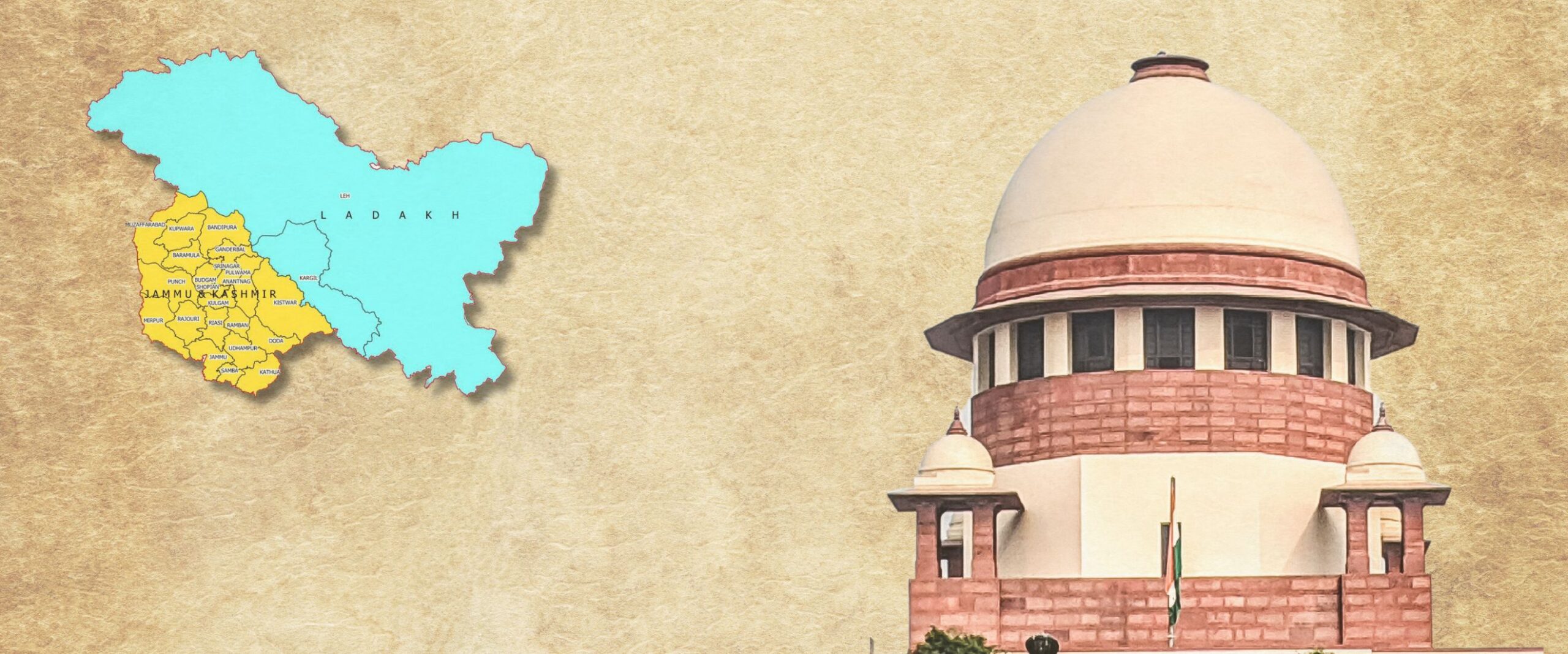Analysis
Jammu & Kashmir and the abrogation of Article 370: The letter and the spirit
DESK BRIEF: A CJI led Constitution Bench has been hearing arguments in one of the most momentous episodes in our political history.

This month, a Constitution Bench presided by the Chief Justice has been hearing (and live streaming) oral arguments in a case that lays bare one of the most momentous episodes in our immediate political history: the revocation of the special status of Jammu and Kashmir.
The bloody history of the republic’s founding moment and its consequent political churn form the expansive backdrop to the riveting courtroom drama. For the past many decades, Jammu and Kashmir has lived on the faultlines: disputed borders, contested populations, wars and military occupations, forced disappearances, shrinking civil liberties, and a repressed press that leaves countless stories untold. It has taken four years since the fateful abrogation for the case to make its way to the Bench. All this time, J&K has remained ripped off its statehood, bereft of a representative government.
Much of this matter boils down to the words used in constitutional promises: ‘India is a Union of States’, the ‘concurrence’ and ‘consultation’ of a state government, the ‘satisfaction’ of a President that ‘government cannot be carried on in accordance with the provisions of the Constitution.’ But beyond the letter of the Constitution, we have already seen impassioned invocations of the spirit, the delicate fabric of federalism that is meant to hold the country together.
For battle-scarred senior counsel, it’s the kind of case to which a chapter will be dedicated in the eventual memoir. In court, Kapil Sibal warned that the issues that will need consideration were “never raised, never decided by this Court.” Solicitor General Tushar Mehta declared that Article 370 promoted a “psychological duality” which was being taken advantage of by “forces against India.” For the petitioners, Gopal Sankaranarayanan explained the principle of “obsta principiis” to argue that when “something is damaging, we should nip it in the bud.”
We at the SCO are well aware of the sense of occasion. Our small but determined team has been tracking the proceedings, all with the goal of helping you, our reader, navigate this constitutional moment. On our Case page here, you can find key materials related to the case: from our daily reporting to copies of petitions and transcriptions. Our arguments matrix provides a quick snapshot of the petitioners arguments. Below, you will find links to our coverage of the case and the surrounding context. Among them are a few excerpts from The Dismantled State: The Untold Story of Kashmir, a book by Anuradha Bhasin which deep dives into the region’s history and the lived experience of its people.
As we continue to cover the remaining oral arguments and the Court’s decision, we are very keen to hear from you. Tell us what we’re getting right, what we’re getting wrong and what we can do better. Write to us with words of critique and appreciation at admin@scobserver.in.